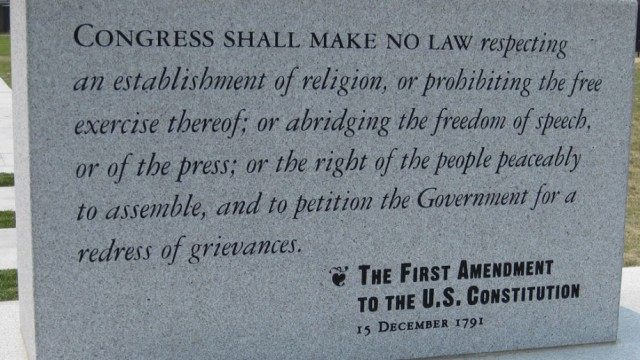A high-profile gag order filed in the state of Massachusetts by Zoe Quinn, a controversial progressive games developer, against her ex-boyfriend Eron Gjoni, has been vacated. The case raised questions of how far the law can silence individuals on the grounds of “online harassment,” and it now appears that Quinn may unintentionally strengthen free speech protections in the digital era.
The gag order was filed late last year in response to a long post by Eron Gjoni detailing Quinn’s history of infidelity in their relationship, including her affair with Kotaku reporter Nathan Grayson. Attempts to censor discussion of the blogpost around the web set off a chain reaction that eventually led to the GamerGate controversy. Gamers were particularly interested in whether there had been any conflicts of interest between games journalists and Quinn, although Gjoni has always maintained that his intention was to warn others about an individual who he alleged was an abusive partner.
The gag order prevented Gjoni from posting “any further information about [Quinn] or her personal life online.” If it had been upheld, the order would have prevented Gjoni from saying anything about Quinn as long as it was in place. In contrast to libel law, which prevents people issuing slanderous statements about another individual, this order would have prevented Gjoni from speaking about Quinn even if everything he said was factually true.
The case has attracted the attention of prominent UCLA law professor and free speech expert Eugene Volokh, who argues that the gag order was a “clear violation of the first amendment.” Along with Professor Aaron Caplan of Loyola Law School, he has since filed two amicus briefs in support of Gjoni. In his most recent brief, Volokh emphasised that the case was about “whether an American court can issue a prior restraint against a person’s conveying any “information” about another person.”
Since Volokh’s intervention, Quinn and her lawyers have sought to extricate themselves from it. In August, she notified the state’s Supreme Judicial Court and Appellate Court of her decision to vacate the gag order. A lower court judge vacated the underlying order on August 22nd.
But Gjoni is not prepared to let the matter rest. Although his name is now cleared, walking away from the case would mean that no common law precedent against gag orders that place blanket bans on the public discussion of other people. As he explained on Reddit:
My options now are to drop it and take the easy way out to clear my record, everything else be damned. Or, to affirm that this order was illegitimate, and try to make case-law protecting other people (in Massachusetts anyway) from being unconstitutionally subject to similar orders.
In other words, if Gjoni and his lawyers take the issue before the state Supreme Court, the resulting verdict could establish a precedent that makes similar gag orders harder to achieve. Gjoni, who has relied heavily on online crowdfunding to fund his legal defence, threw the decision open to his supporters, informing them that if $7,000 could be raised, he would have the resources to continue the fight. His backers answered swiftly, raising the full sum in less than 12 hours.
The new legal frontier of the internet has presented would-be censors with new opportunities to circumvent safeguards on free speech. Gjoni’s case echoes the ongoing Canadian “Twitter trial”, where feminist activists had a man arrested and put on trial because of mild criticism on social media, which they alleged was “harassment.” However, in Quinn’s case, the attempt to sidestep free speech protections looks like it may just backfire.
Follow Allum Bokhari @LibertarianBlue on Twitter.

COMMENTS
Please let us know if you're having issues with commenting.